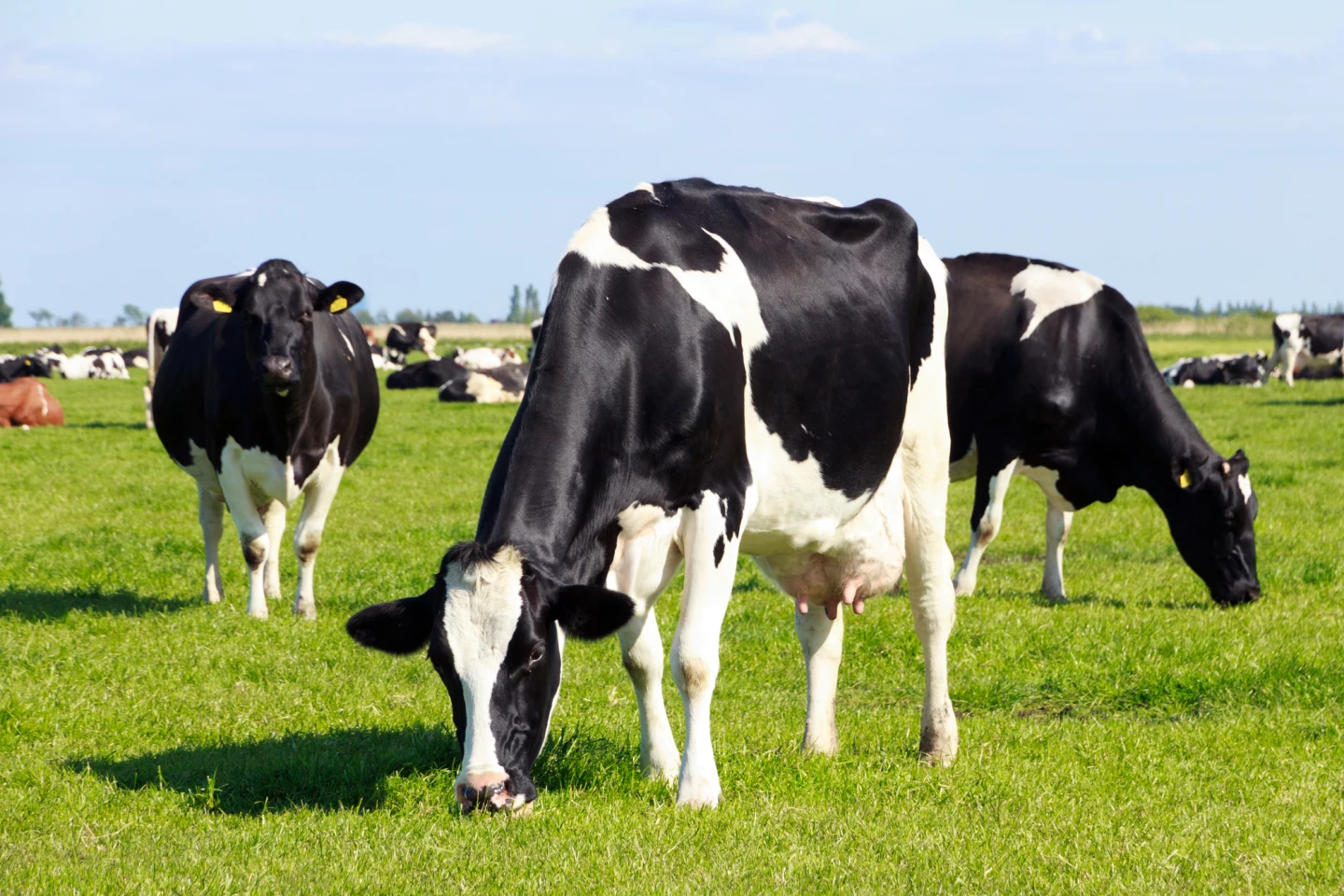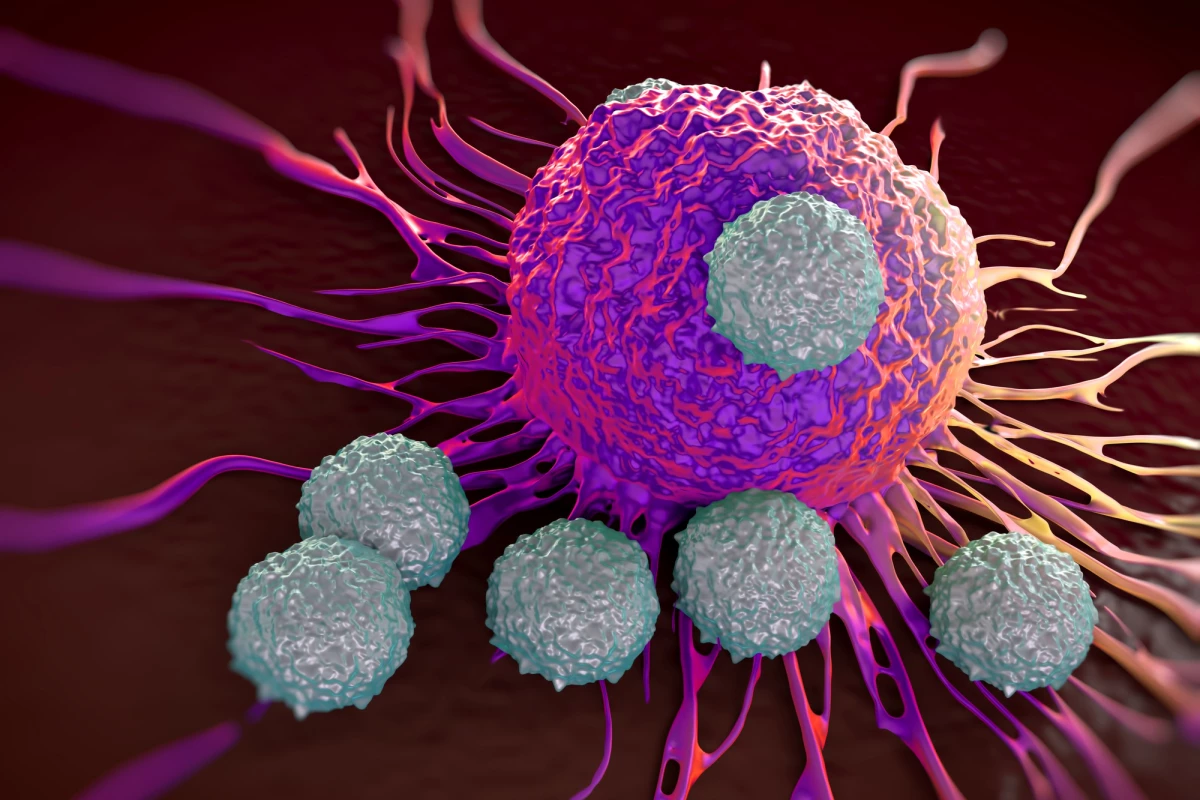A new study has found that trans-vaccenic acid, a fatty acid found in dairy products and the meat of grazing animals, may boost the cancer-killing abilities of the immune system’s T cells. Also found to enhance the effectiveness of immunotherapy, the nutrient has the potential to be used as a nutritional supplement to complement cancer treatments.
Diet has been shown to provide a range of health benefits, including preventing cancer spread or boosting treatment of the disease. However, less is known about how specific nutrients affect human physiological and pathological processes owing to the vast diversity of foods and the complexity of diet metabolism.
Researchers at the University of Chicago approached this dilemma by assembling a blood nutrient compound library and screening its contents to identify nutrients that influence the development of cancer and its response to treatments.
“There are many studies trying to decipher the link between diet and human health, and it’s very difficult to understand the underlying mechanisms because of the wide variety of foods people eat,” said Jing Chen, the study’s corresponding author. “But if we focus on just the nutrients and metabolites derived from food, we begin to see how they influence physiology and pathology.”
The researchers’ library contained 255 bioactive nutrient-derived molecules, which they screened for their ability to influence anti-tumor activity by activating the immune system’s effector CD8+ T cells. When a naïve T cell encounters an antigen, it differentiates into an effector T cell. Cytotoxic CD8+ T cells, responsible for killing cancer cells or cells infected by pathogens, are a type of effector T cell. From their ‘top six,’ they identified trans-vaccenic acid (TVA) as the best performer.
“By focusing on nutrients that can activate T cell responses, we found one that actually enhances anti-tumor immunity by activating an important immune pathway,” Chen said.
TVA is a natural trans fatty acid that comes mainly from the meat fat of ruminants, grazing animals like cows and sheep, and dairy products like milk and butter; the body can’t produce its own. Fun fact: TVA gets its name from the Latin for cow, vacca. Only about 20% of TVA is broken down into other byproducts, which leaves the remaining 80% circulating in the blood.

“That means there must be something else it does, so we started working on it more,” Chen said.
Conducting experiments on cells and mouse models of diverse tumor types, the researchers found that feeding mice a TVA-enriched diet significantly reduced the tumor growth potential of melanoma and colon cancer cells compared to mice fed a control diet. TVA diet, but not control diet, resulted in an increased CD8+ T cell population in tumor-infiltrating lymphocytes (TILs), cells that recognize cancer cells as abnormal and penetrate the tumor’s microenvironment to kill them. Dietary TVA reduced CD8+ T cell exhaustion in tumors and promoted cell function, including survival. TVA diet did not affect CD8+ T cell population and function in mice without tumors, suggesting that the effects of dietary TVA on T cells were probably dependent on generating an immune response.
The researchers performed molecular and genetic analyses to identify the effect of TVA on T cells, including a new technique for monitoring the transcription of single-stranded DNA (ssDNA) called kethoxal-assisted single-stranded DNA sequencing, or KAS-seq. iThe analysis showed that TVA inactivated the surface receptor on immune cells, GPR43, which is usually activated by short-chain fatty acids often produced by gut microbiota. Overpowering the short-chain fatty acids, TVA activates the CREB pathway, a cellular signaling pathway involved in a variety of functions, including cellular growth, survival, and differentiation. The researchers also found that mouse models with the GPR43 receptor removed from CD8+ T cells lacked their improved tumor-fighting ability.
The final step in the study involved analyzing blood samples from patients receiving chimeric antigen receptor (CAR)-T cell immunotherapy treatment for lymphoma. CAR-T cell therapy uses genetically modified T cells to locate and destroy cancer cells more effectively. The researchers found that patients with higher TVA levels tended to respond better to treatment than those with lower levels. They also tested leukemia cell lines, finding that TVA enhanced the ability of blinatumomab, an immunotherapy drug that engages T cells, to kill leukemia cells.
The findings suggest that TVA could be used as a dietary supplement to improve the effectiveness of T cell-based cancer treatments. However, the researchers are quick to point out that it’s the nutrient itself that’s important and not the food source, advising against consuming too much red meat and dairy to boost TVA levels, which could be detrimental to health.
The research highlights the importance of the emerging field of metabolomics, the large-scale study of the products of cell metabolism, to understanding how our diet’s building blocks affect our health.
“After millions of years of evolution, there are only a couple hundred metabolites derived from food that end up circulating in the blood, so this means they could have some importance in our biology,” said Chen. “To see that a single nutrient like TVA has a very targeted mechanism on a targeted immune cell type, with a very profound physiological response at the whole organism level – I find that really amazing and intriguing.”
The study was published in the journal Nature.
Source: University of Chicago






